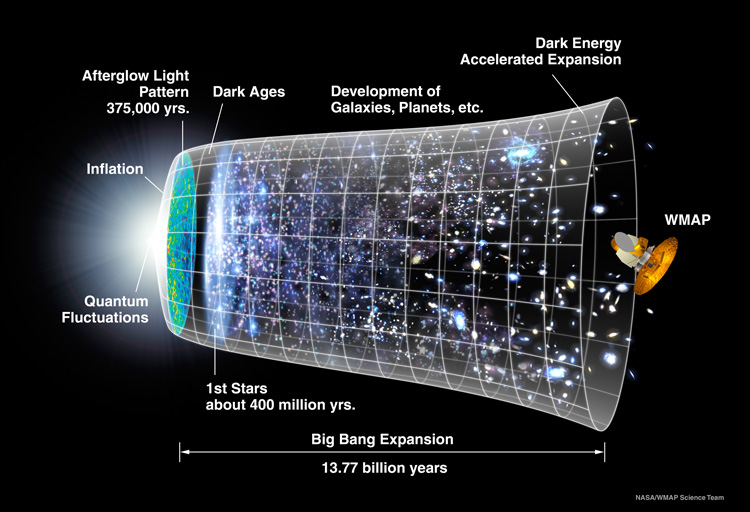If anyone is reading this little blog o' mine, I'm going to be out-of-pocket until at least the 7th of January. But I'll leave you with this thought (the same one I'll be pondering this week): if adapting to an accelerating pace of change and diminution of resources is necessary for survival, what place is there for first (enduring, unchanging) principles? And: is the answer to that question precisely the topic of this blog? Is that where we might find wisdom?
Best wishes for the New Year, especially now we're past the dark night of the solstice!
Is there any such thing? Let's investigate—for good or ill. A blog about fiction and literature, philosophy and theology, politics and law, science and culture, the environment and economics, and ethics and language, and any thing else that strikes our fancy. (Apologies to Bertrand Russell)
Pages
▼
31 December 2007
28 December 2007
Where, then, is wisdom to be found?
I think it's safe to say our perceptions of the world and our place in it have undergone remarkable changes in recent times. The pace of change and the growth of knowledge at times seems overwhelming. Our evolving understanding of the extent and duration of the physical universe, our growing recognition of the building blocks of life, our awareness of our environment and our impact on it, our sense of ourselves as one species among many sharing the same space and limited resources: all these are fresh. And though these observations might seem obvious, these changes have impacted us in ways we can't begin to fathom. Where, then, is wisdom to be found?
27 December 2007
The Premises
26 December 2007
Life: Of Which Is Variety the Spice

One argument is that life, in all its myriad forms, is simply the expression of DNA's survival mechanism in the hostile/friendly [?] environment of planet Earth. That's an interesting form of determinism which incorporates our notions of free will into itself. That is, our exercise of free will is really an effort toward survival—of the individual, of the species, of DNA, of life itself—as conditioned by (in response to) our environmental circumstances.
Is that, indeed, the meaning of life? Is that the purpose? The survival of the species? Of DNA? Of life itself?
On other worlds, could we conceive something configured differently from DNA to be the foundation of all life? Competitive, though radically different, life forms?
24 December 2007
Nobody really knows for sure
23 December 2007
Premise
22 December 2007
A Logical Place to Begin
The Stanford entry in my Wise Links list shows how a philosopher (def: lover of wisdom) begins to think about the issue: look at competing theories, analyze them, see what their shortcomings are (if any), and try to synthesize a view that takes account of the good points and gets around the perceived problems.
Welcome!
Welcome to my Blog!
We often hear tales about seekers trekking to the mountains of Tibet or the ashrams of India or the temples of China or the monasteries of Japan hoping to find some mysterious Wisdom of the East only to come away with a riddle or an impenetrable koan. Or the seeker is told he must scrub floors or peel potatoes or beg or sit contemplatively for decades before he can even begin to understand the nature of his pursuit. Indeed, this is what we often think about first when we think about wisdom.
I believe we here in the West also have a form of wisdom to offer the seeker. Some comes from traditional philosophy. Some from religion. And some from literature. These, of course, are not the only sources. Nor do any of them have a monopoly on the topic. Much can be gleaned from mere objective observation and reflection. Much more can develop through dialogue.
For the past few years I have been writing a book with the title of this blog. Its subjects include such things as first principles, faith vs. reason, life on earth, meaning, communication, love, work, diversity, controversy, knowledge, time, change, power, law, freedom, technology, history, property, economics and markets, the environment, war and peace, religion, and government. I will post my thoughts on these and many other topics in the hope of engaging you, the readers here, in a dialogue about what wisdom our Western civilization is contributing to the great project of humankind here on planet Earth.
Please join me!
We often hear tales about seekers trekking to the mountains of Tibet or the ashrams of India or the temples of China or the monasteries of Japan hoping to find some mysterious Wisdom of the East only to come away with a riddle or an impenetrable koan. Or the seeker is told he must scrub floors or peel potatoes or beg or sit contemplatively for decades before he can even begin to understand the nature of his pursuit. Indeed, this is what we often think about first when we think about wisdom.
I believe we here in the West also have a form of wisdom to offer the seeker. Some comes from traditional philosophy. Some from religion. And some from literature. These, of course, are not the only sources. Nor do any of them have a monopoly on the topic. Much can be gleaned from mere objective observation and reflection. Much more can develop through dialogue.
For the past few years I have been writing a book with the title of this blog. Its subjects include such things as first principles, faith vs. reason, life on earth, meaning, communication, love, work, diversity, controversy, knowledge, time, change, power, law, freedom, technology, history, property, economics and markets, the environment, war and peace, religion, and government. I will post my thoughts on these and many other topics in the hope of engaging you, the readers here, in a dialogue about what wisdom our Western civilization is contributing to the great project of humankind here on planet Earth.
Please join me!




